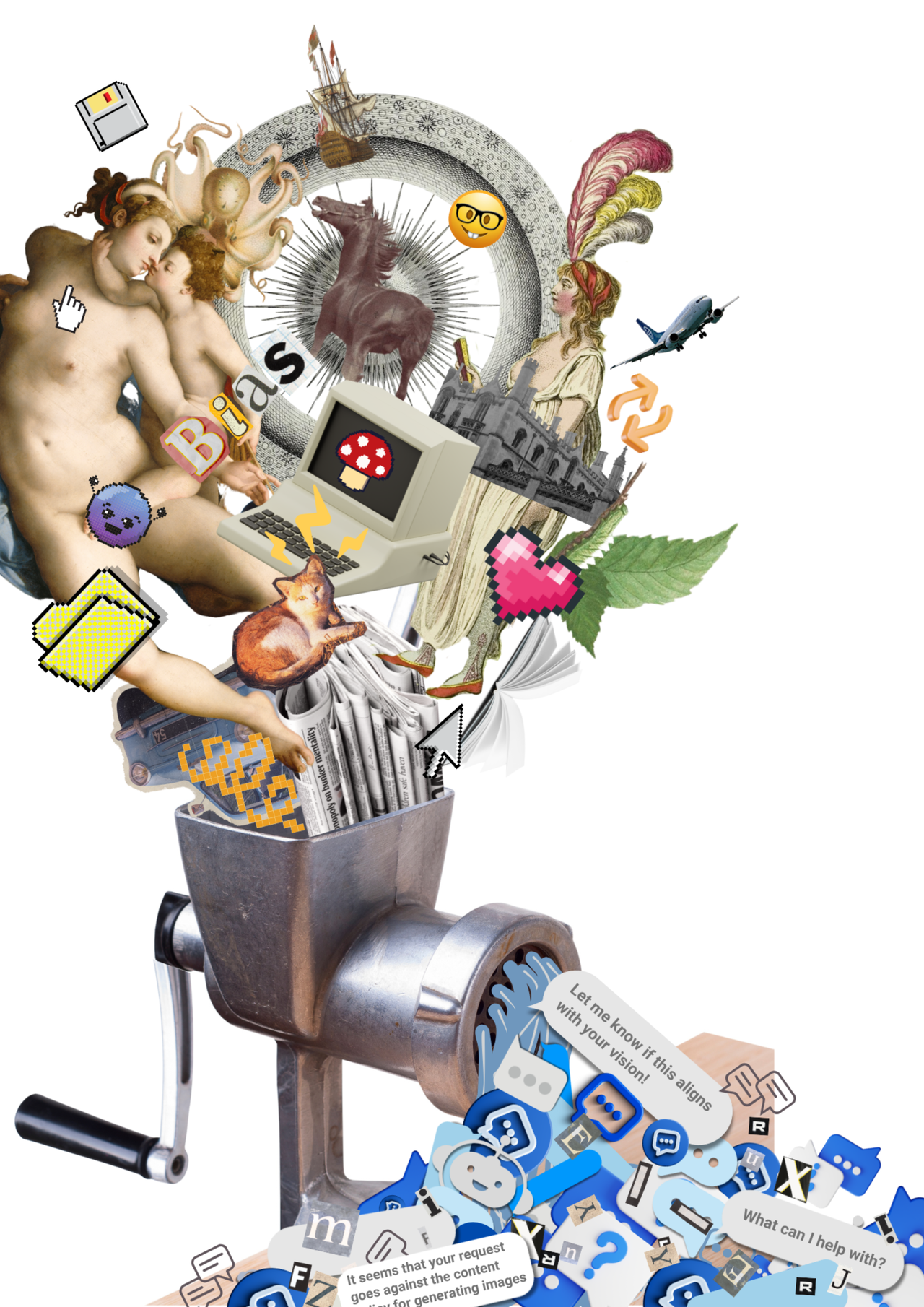
ΑΙhub.org
Generative AI, online platforms and compensation for content: the need for a new framework
 Janet Turra & Cambridge Diversity Fund / Better Images of AI / Ground Up and Spat Out / Licenced by CC-BY 4.0
Janet Turra & Cambridge Diversity Fund / Better Images of AI / Ground Up and Spat Out / Licenced by CC-BY 4.0
By Thomas Paris, HEC Paris Business School and Pierre-Jean Benghozi, École polytechnique
The emergence of generative artificial intelligence has put the issue of compensation for content producers back on the table.
Generative AI offers undeniable benefits but raises familiar fears tied to disruptive technologies. In the cultural and creative sectors, concerns are mounting over the potential replacement of human creators, the erosion of artistic authenticity and risks of copyright infringement. Legal battles are already emerging worldwide, with intellectual property owners and AI developers clashing over rights. Alongside these legal and ethical concerns lies the economic question: how should revenues generated by AI be fairly distributed?
Copyright law (droits d’auteur), which is traditionally based on the reproduction or representation of specific works, may not be a fit for this question. Individual contributions to AI-generated outputs are often too complex to quantify, making it difficult to apply the principle of proportional remuneration, which holds that payment for an individual work is tied to the revenue it generates.
An asymmetrical relationship
The disputes surrounding generative AI echo long-standing tensions between digital platforms and content creators. Platforms such as Spotify, YouTube and TikTok dominate the music industry; Netflix and Apple lead in film and television; Steam in gaming; and Google and Meta in news media.
These platforms wield enormous power in reshaping industries, influencing consumption patterns and establishing new power dynamics. On the one hand, they amplify the reach of creative works, but on the other, they rely on an inherently unequal relationship. For example, if Spotify removes a song, the artist’s reach and revenue may decline sharply, but Spotify itself is unlikely to suffer significant consequences–perhaps losing a few subscribers to competitors, at most.
A Nobel Prize for platform economics
The economics of digital platforms have been widely studied. This includes platforms’ two-sided market structure–a concept for which economist Jean Tirole won a Nobel prize in 2014. In this model, platforms act as intermediaries between two groups that benefit from each other: the more content a platform offers, the larger its audience grows, and the larger audience, in turn, attracts more content creators. This dynamic often leads to market concentration, and to platform strategies that subsidise one side to grow the other.
However, most research in this area has not fully addressed the complexities of platforms’ relationships with different types of content. High-value “premium” content, such as live sporting events, holds a singular status compared to more common offerings. These distinctions are often overlooked, particularly when assessing the value different types of content bring to a platform’s economy.
This question of value is central to the conflicts between platforms and content providers, as well as the emerging disputes between AI operators and content owners. The disputes underscore the need for a new framework, as traditional tools are proving inadequate for addressing these complex issues.
The challenge of valuing content
The news industry provides a clear example of the complex relationship between platforms and content providers. News publishers worldwide have long sought compensation from platforms such as Google and Meta for featuring their content. Google, for instance, indexes news articles alongside other types of content to enhance search relevance and platform value. However, the exact contribution of news content to Google’s business model is difficult to determine due to its layered, interconnected nature.
Google’s ecosystem relies on indexing vast amounts of content, some of which is ad-supported, while other elements–such as Google News–do not generate direct revenue. Additionally, data collected across Google’s services improve ad targeting and search accuracy, further complicating efforts to isolate the value of specific content.
Depending on user behaviour, content may either appear as a hypertext link directing users to the original publisher, or as a summary that keeps users within Google’s environment. In cases where users stay on Google, the platform effectively acts as a content provider, displaying excerpts in a crowded layout in which individual contributions are unclear. When users click through, Google serves as a traffic driver, sending readers to the publisher’s site. As a recommender, Google adds value to content; as a content provider, it extracts value from it. This dual role blurs the lines of compensation and also complicates efforts to determine how much an individual piece of content contributes to a platform’s overall success.
A new paradigm
Print media has been particularly affected by the rise of digital platforms, which profit significantly from news content. Disputes over how to measure the value of individual articles or publishers to platforms such as Google and Meta remain unresolved.
These conflicts vary by country, with outcomes influenced by legal jurisdictions, power dynamics and negotiations. Some agreements are struck only to be later challenged, while in other cases, platforms respond by removing news content altogether. Courts often avoid setting explicit guidelines on revenue sharing, leaving many questions unanswered.
This uncertainty reflects a broader shift. In the platform economy, individual content, or even entire categories of content, no longer has a clear, measurable contribution to overall value. Given the importance of platforms in the economies of cultural industries, developing a new framework to address these complexities is increasingly urgent.![]()
Thomas Paris, Associate professor, HEC Paris, researcher at CNRS, HEC Paris Business School and Pierre-Jean Benghozi, Professeur économie-gestion, École polytechnique
This article is republished from The Conversation under a Creative Commons license. Read the original article.










